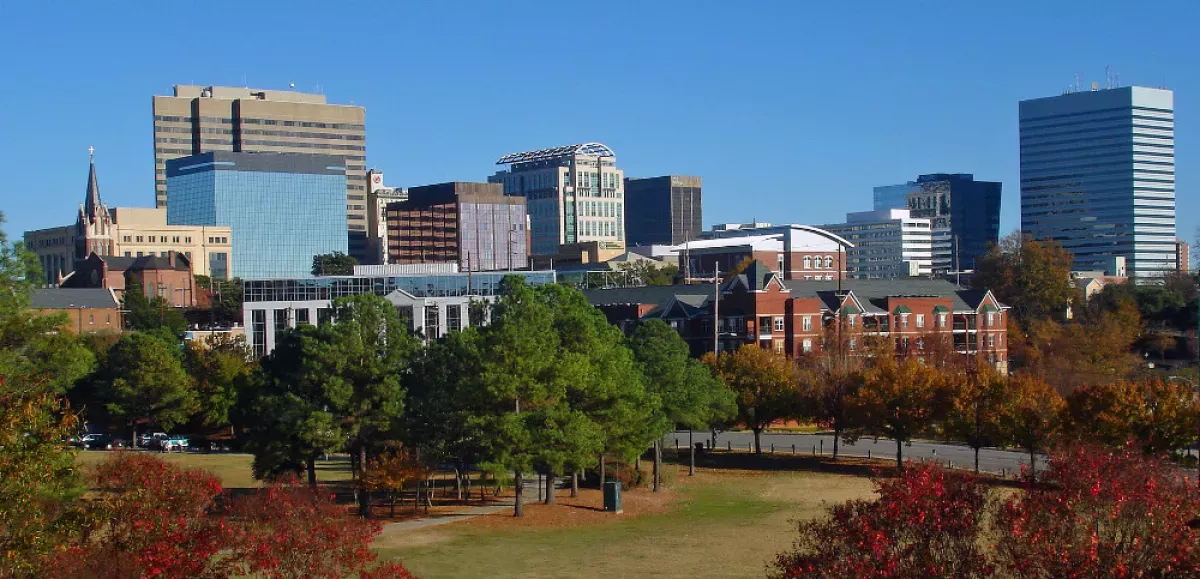Columbia, the capital of South Carolina, boasts a population of 136,632 (2020 census), making it the state's second-largest city. As Richland County's seat, it extends partly into Lexington County. The city anchors the Columbia, SC Metropolitan Statistical Area, encompassing an estimated 858,302 residents (2023), ranking it as the 70th most populous in the US. The name "Columbia" poetically represents the United States, honoring explorer Christopher Columbus. The city's common abbreviation, "Cola," gave rise to its nickname, "Soda City."
1906: South Carolina College Renamed University of South Carolina
In 1906, South Carolina College, established in 1801, underwent a name change to become the University of South Carolina.
1907: Textile Manufacturing Boom
Columbia saw a significant rise in textile manufacturing, with six mills operating in the city and employing over 3,400 workers. This industry brought an economic boost to the Midlands region.
1908: First Paved Streets
Columbia paved 17 blocks of Main Street, marking the city's first paved roads.
1911: Construction Boom
Columbia experienced a construction boom fueled by revenue from textile mills, resulting in the construction of the Union Bank Building, the Palmetto National Bank, a shopping arcade, and large hotels like the Jefferson and the Gresham.
1912: Construction Boom
Columbia experienced a construction boom fueled by revenue from textile mills, resulting in the construction of the Union Bank Building, the Palmetto National Bank, a shopping arcade, and large hotels like the Jefferson and the Gresham.
1916: Establishment of the Farm Credit System
The Farm Credit System, the largest agricultural lending organization in the United States, was established by Congress in 1916.
September 1, 1917: Establishment of Camp Jackson
The US Army selected Columbia as the site for Camp Jackson, a military installation later classified as a "Field Artillery Replacement Depot," with the first recruits arriving on September 1, 1917.
1925: Asphalt Paving Replaces Wooden Blocks
After an experiment with wooden block paving on Washington Street failed due to buckling and floating during heavy rains, the city opted to replace them with asphalt paving in 1925.
1930: Thriving Retail Sector
Columbia had become a major trading hub with over 800 retail establishments, including food stores, clothing outlets, restaurants, filling stations, pharmacies, furniture stores, auto dealers, shoe stores, cigar stands, department stores, and a book store.
1930: Construction of Township Auditorium
The Township Auditorium, designed by the Columbia architectural firm of Lafaye and Lafaye, was constructed in 1930. It has since hosted thousands of events, including concerts, conventions, and wrestling matches.
1934: Conversion of Federal Courthouse into City Hall
The city of Columbia purchased the federal courthouse, a granite structure designed by Alfred Bult Mullett, and repurposed it as City Hall. The building, completed in 1876, is listed on the National Register of Historic Places.
1938: Providence Hospital Founded in Downtown Columbia
Providence Hospital, a 304-bed facility in downtown Columbia, was established in 1938 under the sponsorship of the Sisters of Charity of Saint Augustine Health System.
1940: Reactivation of Camp Jackson as Fort Jackson
Camp Jackson was reactivated as a permanent military installation named Fort Jackson after lobbying efforts by city leaders and the congressional delegation.
December 7, 1941: Pearl Harbor Attack
On December 7, 1941, the attack on Pearl Harbor took place, an event later commemorated by a monument in Columbia's Memorial Park.
1942: Doolittle Raid Training
Lt. Colonel Jimmy Doolittle and his pilots trained for the Doolittle Raid over Tokyo at what is now Columbia Metropolitan Airport, using B-25 Mitchell bombers.
1945: Equal Pay Ruling for Black Teachers
A federal judge ruled in 1945 that black teachers in Columbia were entitled to equal pay as their white counterparts.
1946: WUSC-FM Begins Broadcasting
The University of South Carolina's student-run radio station, WUSC-FM, commenced operations in 1946.
1951: All-America City Award
Columbia received the All-America City Award for the first time in 1951.
1954: Atlantic Coast Line Railroad's Regional Train to Florence and Wilmington Ends
A regional train operated by the Atlantic Coast Line Railroad, connecting Columbia to Florence and Wilmington, ceased service in 1954.
1954: Brown v. Board of Education Ruling
The US Supreme Court declared segregated public schools unconstitutional in its landmark Brown v. Board of Education ruling in 1954.
1959: Southern Railway's Skyland Special Ends Service to Columbia
The Southern Railway's Skyland Special, which ran between Asheville, North Carolina, and Jacksonville, Florida, discontinued its stop in Columbia's Union Station in 1959.
August 21, 1962: Desegregation of Lunch Counters
Eight downtown chain stores in Columbia served black customers at their lunch counters for the first time on August 21, 1962.
1963: University of South Carolina Admits First Black Students
The University of South Carolina, a public institution, took a significant step towards integration by admitting its first black students in 1963.
1964: All-America City Award
Columbia received its second All-America City Award, recognizing the city's progress in racial integration and equality.
1965: Newsweek Recognition
Newsweek published an article in 1965 praising Columbia as a city that had "liberated itself from the plague of doctrinal apartheid."
1966: Southern Railway's Augusta Special Ends Service to Columbia
Until 1966, the Southern Railway's Augusta Special provided service from Columbia Union Station to destinations including New York City and Augusta, Georgia.
1967: Restoration of Robert Mills House
The restoration of the historic Robert Mills House in 1967 sparked a wave of renovation and restoration efforts for other historic structures in Columbia.
1968: Opening of Carolina Coliseum
Carolina Coliseum, a 12,401-seat facility, opened in 1968 as the home of the USC Gamecocks' basketball teams. It was designed for various events, including concerts and shows.
1971: Lexington Medical Center Opens
Lexington Medical Center, a network of hospitals and urgent care facilities primarily based in Lexington County, opened its doors in 1971. Notably, the network also includes a location in Columbia.
September 9, 1972: Carolina Stadium Renamed
On September 9, 1972, Carolina Stadium was renamed Williams-Brice Stadium in honor of the Williams and Brice families.
1973: The Tower at 1301 Gervais Rises
To accommodate the needs of businesses, Columbia saw the construction of The Tower at 1301 Gervais in 1973.
1980: Columbia's Population Growth
In 1980, the Columbia metropolitan area reached a population of 410,088, marking a period of significant growth for the city.
1983: Columbia's Development Boom
Columbia experienced significant real-estate development in 1983, including the opening of the Columbia Marriott hotel as part of the Palmetto Center package. This package also involved the construction of an office tower and parking garage.
January 21, 1985: Near-Record Low Temperature in Columbia
Columbia experienced a near-record low temperature on January 21, 1985, when the mercury dropped to -1°F (-18°C). This marked only the second time in recorded history that the city had witnessed a sub-zero temperature.
April 1985: Establishment of South Carolina Japanese Language Supplementary School
The South Carolina Japanese Language Supplementary School, also known as Matsuba Gakuen, was founded in April 1985. This weekend school, located on the University of South Carolina campus, caters to Japanese children and receives funding from the Japanese government.
November 1986: Memorial Park Dedicated
Memorial Park was dedicated in November 1986, along with the unveiling of the South Carolina Vietnam Monument.
1987: Capitol Center Claims the Skyline
A landmark year for Columbia's skyline, 1987 marked the completion of the Capitol Center, which became the tallest building in South Carolina.
1988: Opening of South Carolina State Museum
The South Carolina State Museum opened its doors in 1988, marking a significant moment in the city's cultural landscape.
January 14, 1989: Inaugural Performance at Koger Center for the Arts
The Koger Center for the Arts hosted its first performance on January 14, 1989, featuring the London Philharmonic Orchestra.
1989: Bank of America Plaza Joins the Urban Landscape
Adding to Columbia's evolving skyline, the Bank of America Plaza was constructed in 1989.
1989: Matsuba Gakuen Serves Students Aged 3-16
By 1989, Matsuba Gakuen, the South Carolina Japanese Language Supplementary School, provided education to students ranging from 3 to 16 years old.
1990: Columbia's Population Surge
Columbia's population continued to climb, reaching approximately 470,000 by 1990, indicating the city's ongoing expansion.
1990: Broad River Institution Houses Male Death Row
In 1990, Broad River Correctional Institution in Columbia became home to the state's male death row.
1990: Sidney Park Reopens
In 1990, Sidney Park, which had fallen into disrepair after the Civil War, was reopened.
1992: Sidney Park Renamed
In 1992, Sidney Park was renamed Finlay Park in honor of Kirkman Finlay, a former mayor of Columbia.
January 1996: Stone of Hope Monument Unveiled
The Stone of Hope monument, inscribed with a portion of Martin Luther King Jr.'s 1964 Nobel Peace Prize acceptance speech, was unveiled in January 1996.
November 1996: Three Rivers Greenway Proposed
The River Alliance proposed the creation of the Three Rivers Greenway, a 12-mile linear park system, in November 1996.
1996: U.S. Olympic Marathon Trials
Columbia hosted the women's U.S. Olympic Marathon Trials in 1996.
1997: Relocation of Male Death Row from Broad River Institution
By 1997, the male death row was relocated from Broad River Correctional Institution.
November 1998: Granby Park Opens
Granby Park opened in November 1998, providing access to the Congaree River and becoming part of the Three Rivers Greenway.
November 1998: Three Rivers Greenway Pilot Project Opens
In November 1998, a half-mile segment of the Three Rivers Greenway, designed by the Alliance, opened in Columbia as a pilot project. The segment features pathways, lighting, seating, and river access points, setting the standard for future development.
June 2000: Korean War Memorial Dedicated
The Korean War Memorial was dedicated in Memorial Park in June 2000.
2000: U.S. Olympic Marathon Trials
Columbia hosted the women's U.S. Olympic Marathon Trials in 2000.
2000: Confederate Flag Relocated at Statehouse
In a controversial move, the Confederate battle flag was relocated from atop the South Carolina State House to the Confederate monument on the grounds in 2000.
October 2002: Central Midlands Regional Transit Authority (COMET) Founded
The Central Midlands Regional Transit Authority (COMET), responsible for mass transit in the greater Columbia area, was established in October 2002. This followed SCANA's relinquishment of public transportation ownership back to the city.
2002: Colonial Life Arena Opens
In 2002, the Colonial Life Arena opened, becoming the largest arena in South Carolina.
2002: Carolina Coliseum Becomes Practice Facility
With the construction of the Colonial Life Arena in 2002, Carolina Coliseum became the primary practice facility for the men's and women's basketball programs.
2003: EdVenture: A New Era for Children's Museums
2003 saw the opening of EdVenture, the largest children's museum in the Southeast, further enriching Columbia's cultural landscape.
2003: COMET Provides Transportation to Over 2 Million Passengers
Since its inception in 2003, COMET has facilitated transportation for more than 2 million passengers, expanded its route services, and introduced new ADA-accessible buses.
September 2004: Opening of Columbia Metropolitan Convention Center
The Columbia Metropolitan Convention Center, South Carolina's only downtown convention center, opened in September 2004. The state-of-the-art facility hosts a variety of meetings and conventions.
2004: Columbia Metropolitan Convention Center Opens
The Columbia Metropolitan Convention Center opened in 2004, marking a significant development in the city's ability to host large-scale events.
2004: Village at Sandhill Opens
The Village at Sandhill shopping center opened in northeast Richland County in 2004, expanding retail options in the area.
September 28, 2005: Township Auditorium Listed on National Register
Township Auditorium was listed in the National Register of Historic Places on September 28, 2005. The auditorium, known for hosting a variety of events, underwent a $12 million renovation.
November 2005: Establishment of Soda City Market
The Soda City Market, an outdoor market, was established in November 2005 as part of Main Street's revitalization. The market features local vendors and attracts thousands of shoppers every Saturday.
2006: Charlie W. Johnson Stadium Opens
The Charlie W. Johnson Stadium was completed and dedicated in 2006.
September 2007: New Convention Center Hotel Debuts
Further bolstering Columbia's appeal as a convention destination, a new convention center hotel opened in September 2007.
2007: Junior Wildwater World Championships
The 2007 Junior Wildwater World Championships, featuring European canoe and kayak racers, were held in Columbia.
October 2009: Columbia Recognized as a Top Retirement Destination
In October 2009, U.S. News & World Report included Columbia on its list of best places to retire. The city's desirable location and affordable median housing price were cited as major factors contributing to its appeal among retirees.
2009: Tower at Main and Gervais Completes Columbia's Skyline
Columbia's skyline welcomed its newest addition in 2009 with the completion of the Tower at Main and Gervais, a testament to the city's ongoing growth.
2009: Founders Park Opens
Founders Park opened in 2009, becoming the largest baseball stadium in South Carolina.
2009: Founders Park Opens for USC Baseball
Founders Park, the new home of the University of South Carolina's baseball team, opened its gates in 2009.
July 2010: Stephen K. Benjamin Makes History
In a historic moment for Columbia, Stephen K. Benjamin was elected as the city's first African-American mayor in July 2010.
2010: 2010 Census Data Provides Insights into Columbia
The 2010 census provided valuable demographic data for Columbia, indicating a population of 129,272 individuals, with 52,471 households and 22,638 families residing in the city. The population density was recorded as 928.6 people per square mile (358.5 people per square kilometer).
2010: Gamecocks Baseball Clinches National Championship
The University of South Carolina Gamecocks baseball team achieved a historic victory in 2010, winning their first NCAA national championship.
2011: Downtown Façade Improvement Program
A façade improvement program, implemented in 2011, resulted in the restoration and improvement of several historic Main Street shopfronts in downtown Columbia.
2011: Mast General Store Opens
Adding to its retail landscape, Columbia saw the opening of a Mast General Store in 2011.
2011: Gamecocks Baseball Secures Second National Title
Continuing their winning streak, the University of South Carolina Gamecocks baseball team secured their second consecutive NCAA national championship in 2011.
June 29, 2012: Record-Breaking Heat Engulfs Columbia
Columbia experienced scorching temperatures on June 29, 2012, with the main weather station recording a high of 109°F (43°C). Remarkably, a weather station at the University of South Carolina campus registered an even higher temperature of 113°F (45°C) on the same day, setting a new all-time high temperature record for the state of South Carolina.
July 2013: Columbia Earns Accolades for Livability
Columbia received several accolades in July 2013, solidifying its reputation as a desirable place to live. Kiplinger Magazine named it one of the "10 Great Cities to Live In," further boosting its profile.
2013: COMET Undergoes Name Change and Rebranding
In 2013, the Central Midlands Regional Transit Authority (formerly known as CMRTA) underwent a rebranding initiative and adopted the name COMET.
April 11, 2014: W.H. "Skip" Holbrook Takes Office as Columbia Police Chief
W.H. "Skip" Holbrook was sworn in as the Chief of Police for the Columbia Police Department on April 11, 2014.
November 2014: WWII Comrades Statue Unveiled
In November 2014, a bronze statue and plaza dedicated to WWII Navy comrades from South Carolina was unveiled in Memorial Park.
2014: The Music Farm Comes to Senate Street
Columbia's music scene got a boost in 2014 when The Music Farm, later renamed The Senate, opened a location on Senate Street.
January 6, 2015: Groundbreaking for Segra Park
On January 6, 2015, developers broke ground on Segra Park.
February 2015: Greyhound Lines Relocates Station in Columbia
In February 2015, Greyhound Lines moved its station in Columbia from Gervais Street to a new location at 710 Buckner Road.
July 10, 2015: Confederate Flag Removed from Statehouse Grounds
Following the tragic Charleston church shooting, the Confederate flag was removed from the Confederate monument on the South Carolina State House grounds on July 10, 2015, and relocated to a museum.
October 2015: Historic Flooding Disrupts Gamecocks Football
Historic flooding in October 2015 forced the South Carolina Gamecocks football team to relocate their October 10 home game, highlighting the devastating impact of the natural disaster on the city.
2015: MegaBus Launches Operations in Columbia
MegaBus commenced its bus services in Columbia in 2015, offering routes connecting cities such as Atlanta, Fayetteville, Richmond, Washington, D.C., and New York City.
April 2016: Segra Park Welcomes the Fireflies
Columbia welcomed a new era of baseball in April 2016 with the opening of Segra Park, formerly known as Spirit Communications Park, home to the Columbia Fireflies.
April 2016: Segra Park Opens
Segra Park opened in April 2016, bringing minor league baseball back to Columbia after a long hiatus.
2016: Free Times Acquired by The Post and Courier
In 2016, The Post and Courier of Charleston purchased the alt-weekly publication, Free Times. Subsequently, Free Times was integrated as an arts-focused section within the Columbia weekly edition of The Post and Courier.
2016: Opening of Segra Park
Segra Park, a minor league baseball stadium, was built on the old state mental health campus in 2016. It became home to the Columbia Fireflies.
April 2017: Gamecocks Basketball Makes History
April 2017 was a triumphant month for the University of South Carolina's basketball program. The women's team, led by coach Dawn Staley, clinched their first NCAA championship, while the men's team reached the Final Four for the first time.
April 2017: Gamecocks Win NCAA Women's Basketball Championship
The University of South Carolina women's basketball team won the NCAA national championship in April 2017, defeating Mississippi State 67-55.
August 2017: Total Solar Eclipse Graces Columbia
A rare celestial event captivated Columbia in August 2017 when the central path of a total solar eclipse passed directly over the city and the state capitol.
2018: Completion of CanalSide Development
CanalSide, a 23-acre mixed-use development in Columbia's Vista district, was completed in 2018. The project includes 750 residential rental apartments, including townhomes, condominiums, and lofts.
March 2019: Samantha Josephson Murder Sparks Ridesharing Safety Measures
The tragic murder of Samantha Josephson in March 2019, after she mistakenly entered a car she thought was her Uber, led to nationwide calls for increased rideshare safety regulations. The incident prompted the implementation of the Samantha L. Josephson Ridesharing Act in South Carolina, which mandates identifying lights for rideshare vehicles and prohibits non-rideshare drivers from posing as such. Similar laws were enacted in New Jersey, North Carolina, and New York State.
May 2019: "All Out Rally" for Education Reform
In May 2019, approximately 10,000 individuals participated in the "All Out Rally" at the Statehouse to voice their concerns about pressing educational issues, including inadequate teacher compensation, high student-to-teacher ratios, and overall insufficient funding for education. The demonstration was spearheaded by SC for Ed, a left-leaning state advocacy group representing teachers.
2019: Prisma Health Formed Through Merger
Prisma Health, the largest healthcare provider in South Carolina, was created in 2019 through the merger of Palmetto Health and Greenville Health System.
May 2020: Protests and Unrest Erupt in Columbia
Following the death of George Floyd, protests and riots spread to Columbia in May 2020. Demonstrations in the city involved the burning of police cars and damage to business windows.
2020: Center of Population in South Carolina
Columbia was recognized as the center of population for South Carolina in 2020.
2020: 2020 US Census
The 2020 US Census recorded Columbia, South Carolina, as the second-most populous city in the state with a population of 136,632.
2020: Columbia's Population Characteristics Revealed by Census
The 2020 census provided a detailed snapshot of Columbia's population, revealing a total of 136,632 residents, 45,474 households, and 22,243 families residing within the city limits.
2021: Rickenmann Elected Mayor of Columbia
Republican Daniel Rickenmann secured victory in the 2021 mayoral election in Columbia, defeating Democrat Tameika Isaac Devine.
January 4, 2022: Daniel Rickenmann Becomes Mayor of Columbia
On January 4, 2022, Daniel Rickenmann assumed the role of Mayor of Columbia, succeeding Stephen K. Benjamin.
January 2022: Daniel Rickenmann Becomes Mayor
Daniel Rickenmann assumed the role of mayor in January 2022, succeeding Stephen K. Benjamin, who opted not to seek re-election.
April 16, 2022: Mass Shooting at Columbiana Centre Mall
On April 16, 2022, a mass shooting occurred at the Columbiana Centre mall, resulting in injuries to 14 people. Of those injured, 10 suffered gunshot wounds, while four sustained injuries related to the ensuing chaos. Law enforcement apprehended three men in connection with the incident. The Columbia police department stated that the shooting stemmed from an altercation and was not a random act of violence or terrorism.
December 28, 2022: Federal Ridesharing Safety Study Approved
On December 28, 2022, federal legislation for a study on rideshare safety practices passed through the US House and Senate and was sent to President Biden's desk. This followed the tragic murder of Samantha Josephson in Columbia.
2022: Gamecocks Women's Basketball Secures Second National Title
The University of South Carolina Gamecocks women's basketball team won their second NCAA championship in 2022.
March 28, 2023: Brown Wins Special Election for District 4 Seat
On March 28, 2023, Brown secured victory in the special election for the District 4 seat, filling the vacancy left by the passing of incumbent Joe E. Taylor Jr.
2023: Columbia Metropolitan Statistical Area Population Estimate
In 2023, the Columbia, SC Metropolitan Statistical Area had an estimated population of 858,302, making it the 70th-most populous metropolitan statistical area in the United States.
2023: Redesign of Finlay Park Begins
In 2023, the city began a $24 million redesign of Finlay Park.
2023: Columbia's Metropolitan Area Sees Growth
The Columbia metropolitan statistical area, the second largest in South Carolina, reached an estimated population of 858,302 in 2023, underscoring the region's continued growth.
2024: Gamecocks Women's Basketball Wins Third National Championship
The University of South Carolina Gamecocks women's basketball team solidified their dominance by winning their third NCAA championship in 2024.
2036: Columbia Aims for 100% Clean Energy
By 2036, Columbia plans to transition to 100% clean and renewable energy as part of its ambitious climate goals. Key projects supporting this goal include a solar farm to power the wastewater treatment plant, an upgraded water metering system to conserve water, a city-wide effort to reduce water leaks, and the replacement of city-owned vehicles with eco-friendly alternatives.
Mentioned in this timeline

Basketball is a team sport played on a rectangular court...

Bank of America is a multinational investment bank and financial...

Martin Luther King Jr was a pivotal leader in the...
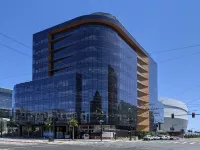
Uber Technologies Inc is a multinational transportation company headquartered in...

Washington D C is the capital city and federal district...
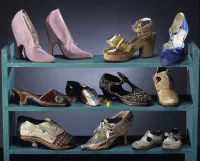
A shoe is a protective and comfort-providing item of footwear...
Trending
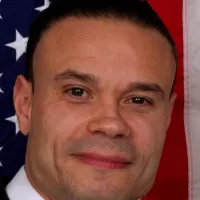
36 minutes ago Dan Bongino Unleashes R-Rated Rant Against Trump Voter's Complaint: Heated Exchange Erupts.

36 minutes ago Luka Don?i? shines as Lakers defeat Warriors; LeBron hits 1,000 3-pointers.
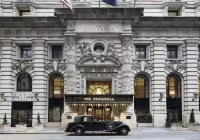
36 minutes ago UAE Supports Stranded Tourists with Hotels and Meals After Iran Flight Disruptions

2 hours ago Luke Kennard Impresses with Lakers, Drawing Praise and Justifying Trade.

2 hours ago Murray & Williamson's Sunday Game Status Uncertain; Murphy to Play, Ruled Out Initially
2 hours ago Israel's missile defense faces depletion amidst war prospects and Iran's missile acceleration.
Popular

Jesse Jackson is an American civil rights activist politician and...

Hillary Diane Rodham Clinton is a prominent American politician lawyer...

XXXTentacion born Jahseh Dwayne Ricardo Onfroy was a controversial yet...

Jim Carrey is a Canadian-American actor and comedian celebrated for...

Kashyap Pramod Patel is an American lawyer who became the...

Michael Joseph Jackson the King of Pop was a highly...
